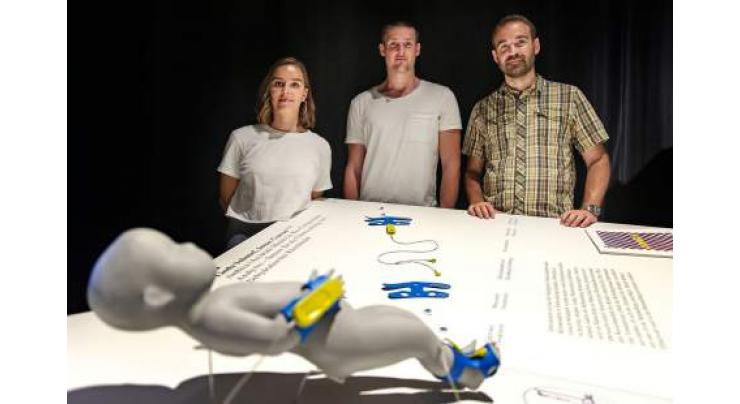
Study Links Gut Viruses To Deadly Complication Of Bone Marrow Transplant
Mohammad Ali (@ChaudhryMAli88) Published August 03, 2017 | 12:50 PM

SAN FRANCISCO, Aug 3 (UrduPoint / Pakistan Point News - 03rd Aug, 2017 ) : An international team of researchers have found that a virus hiding in the gut may trigger the onset of a severe complication known as graft-versus-host disease (GvHD) in patients who receive bone marrow transplants.
GvHD affects up to 60 percent of patients who undergo bone marrow stem-cell transplants, and kills about half of those affected. GvHD is a mirror image of organ rejection, in which immune cells in the transplant attack its new host, the patient.
The new study, led by researchers at the University of California, San Francisco (UCSF), in the United States and Saint-Louis Hospital in Paris, France, and published online Monday in Nature Medicine, unveils a viral biomarker that could allow clinicians to assess patients' risk of an acute form of the disease known as enteric GvHD, which affects the gastrointestinal system.
The team used a technique known as metagenomic next-generation sequencing (mNGS) to catalog microbes in patients' digestive tracts by rapidly and concurrently sequencing genetic material of all organisms, thus monitoring the evolving bacterial population, known as microbiome, and viral population, known as virome, throughout the transplantation process.
The researchers scanned stool samples taken from 44 patients before they received a transplant and up to six weeks after, and sequenced all the deoxyribonucleic acid (DNA) and ribonucleic acid (RNA) in the samples.
They identified a number of viruses that flared up in the guts of patients who developed the deadly condition. Of particular note were members of the picobirnavirus (PBV) family. PBVs are a family of viruses more diverse than the human immunodeficiency virus (HIV).
In fact, each of the 18 patients who tested positive for PBV was carrying a different strain, a diversity that makes it challenging to detect PBVs using a simple lab test. And the presence of these viruses before transplantation, even in very small populations, was a reliable sign that a patient would likely develop the disease after a transplant.
In addition, the team observed a previously unreported "bloom" of other resident viruses that occurred three to five weeks after patients had received transplants. The onset of GvHD appeared to trigger the late awakening of these covert viruses, laying to rest a longstanding chicken-and-egg debate: which comes first, viral infection or GvHD? The researchers concluded that much of the viral flare is due to reactivation of latent gut infections following transplantation.
Charles Chiu, an associate professor of laboratory medicine at UCSF and principal investigator of the study, and his colleagues now hope to develop a metagenomics-based test to screen patients before transplantation, so as to explore the potential utility of PBV as a predictive biomarker.
Related Topics
Recent Stories

Mired in crisis, Boeing reports another loss

Session Awarding Ceremony 2024 held at Cadet College Muzaffarabad

Austrian ski great Hirscher to make comeback under Dutch flag

Pakistan, Japan agrees to convene 'Economic Policy Dialogue'

FM Dar conveys deepest sympathy on torrential rains devastation in UAE

Spain PM Sanchez says weighing resignation after wife's graft probe

Tennis: ATP/WTA Madrid Open results - 1st update

Long-lost Klimt portrait auctioned off for 30 mn euros

Osaka seals first win on clay since 2022 in Madrid

Earthquake jolts Karachi

Sindh minister orders operation after attack on police in Ghotki

TikTok to fight US ban law in courts
More Stories From Health
-

Vaccines save at least 154 million lives in 50 years: WHO
14 hours ago -

UHS to issue MBBS degrees within three months after final result
17 hours ago -

Rawalpindi woman gives birth to six babies
6 days ago -

DC calls for intensive anti-polio drive in ICT
7 days ago -

World Hemophilia Day observed to underscore importance of providing comprehensive care
7 days ago -

Six in a family with heart on the 'right side'
7 days ago
-

Diabetic disease increasing rapidly : Dr. Noor Elahi Memon
8 days ago -

World Hemophilia Day observed
8 days ago -

ATC dismisses bail petition of doctor involved in illegal kidneys transplant
15 days ago -

Dr. Shehzad warns against deviation from WHO guidelines on anti-smoking
16 days ago -

Health activists express concerns over attempts to derail tobacco control
18 days ago -

UHS declares MBBS first prof, MS urology exam results
27 days ago











